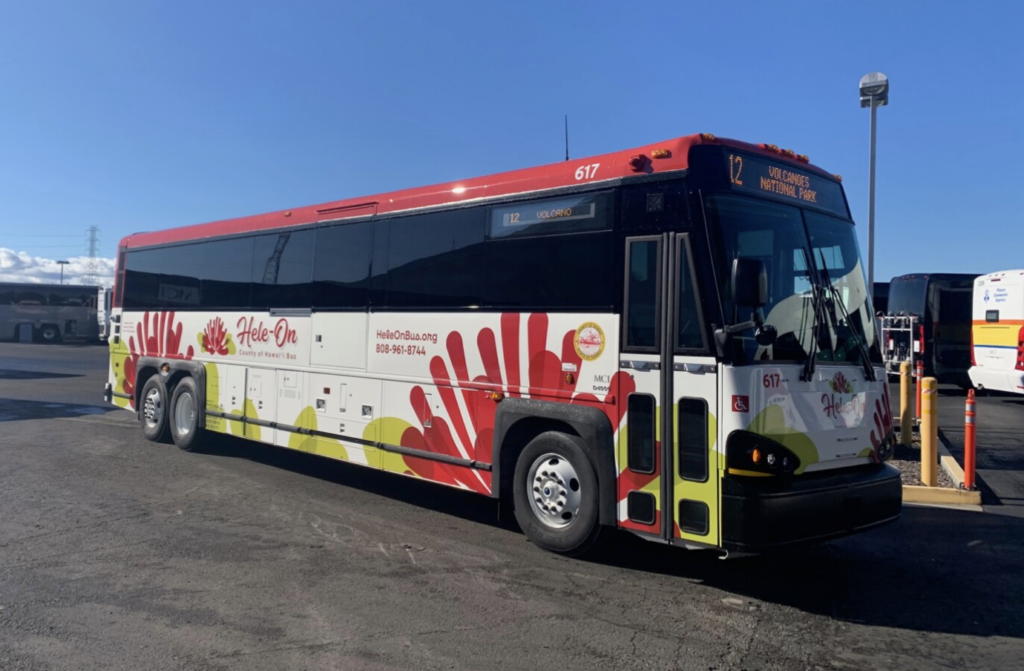Hopes & Dreams

Moderator
Steve Petranik, editor of Hawaii Business
Yu-Hsuan “Anthia” Chen, 25
Born: Taiwan
MBA: HPU, marketing
Plans after graduation:
Start career in Hawaii, then return to Taiwan to help father’s business
Maria Goto, 26
Born: Honolulu
MBA: UH, general
Plans after graduation:
Work for N&K CPAs
Kandice Johns, 29
Born: Wailuku, Maui
MBA: UH, general
Plans after graduation:
Possibly work for Ulupono Initiative
Ngoc Nguyen, 28
Born: Hanoi, Vietnam
MBA: UH, entrepreneurship
Plans after graduation:
Work in Hawaii for a few years before returning to Vietnam
Josiah Nishita, 25
Born: Wailuku, Maui
MBA: UH, entrepreneurship
Plans after graduation:
Work in Hawaii
Emre Tuncbilek, 30
Born: Isparta, Turkey
MBA: HPU, marketing
Plans after graduation:
Join Hawaii’s business community
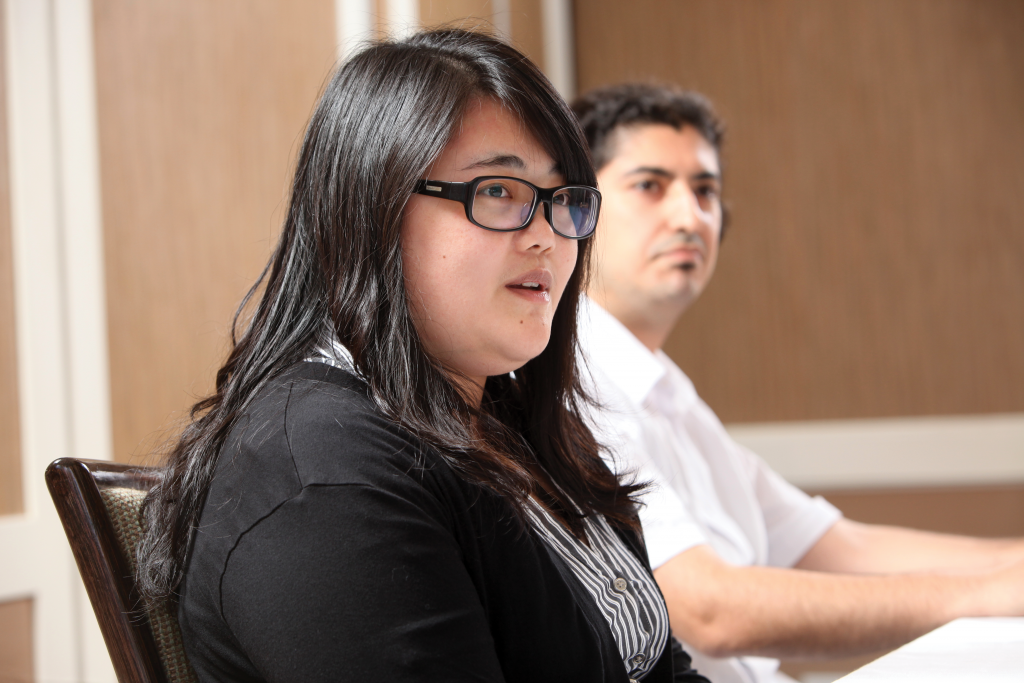 Petranik: Why did you seek an MBA?
Petranik: Why did you seek an MBA?
Nguyen: They ask that question during our interview process. I was four years into my career and I felt there was still much more that I hadn’t learned from my job, which I loved. I thought that if I go back to school using the experience from my job I could understand more.
Goto: I wanted to get the credits for a CPA license and I decided to go through the MBA program rather than the master’s in accountancy, because I wanted to expand my knowledge in management and to have broader technical knowledge and explore changing careers if something interested me. I wanted to market myself better and be a more valuable employee.
Johns: It stemmed from my work experience, which, after college, was in nonprofits specific to HIV and AIDS, and from the frustrations I experienced seeing a lack of capacity within nonprofits and a need for more business skills. I also want to further the impact I make in the community by incorporating my skills and leadership into a corporate social-responsibility role on the for-profit side or in nonprofits.
Tuncbilek: If, five years ago, somebody had told me I was going to leave the workforce, spend all my savings on a master’s program, I would have laughed, because I am a very practical person. I learn by doing, I don’t learn from books. As I advanced my career, the more I realized the difference between management and leadership, and I really wanted to get international experience and to get more leadership skills. I’m really happy to be here and getting my MBA degree.
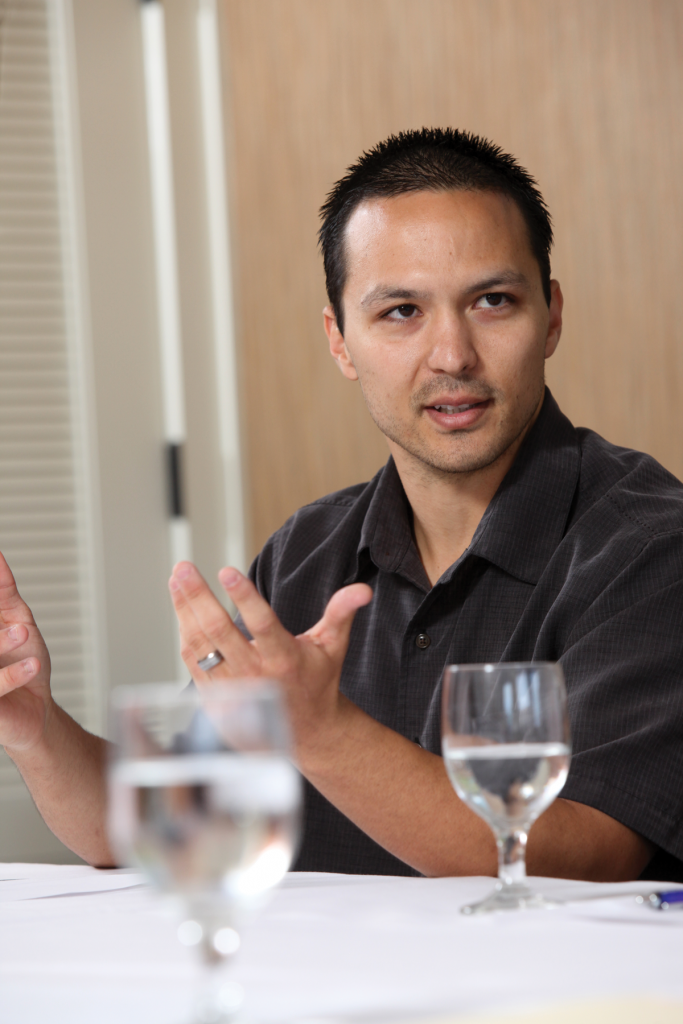 Chen: A master’s degree was always on my life list. I wanted to finish all the education I could possibly have at the beginning of my life. That’s why, after I graduated from college with a finance degree, I entered the MBA program right away.
Chen: A master’s degree was always on my life list. I wanted to finish all the education I could possibly have at the beginning of my life. That’s why, after I graduated from college with a finance degree, I entered the MBA program right away.
Petranik: What are the most important things you’ve learned?
Johns: For me, some of the most important things, and the most challenging, are the financial and accounting skills. My background was in psychology, so that was a vastly different experience, but I definitely see a need for those skills to run a successful business. Another important thing is marketing, to be able to understand what a strong role that plays regardless of the business you’re in. Lastly, sustainability is something we’ve been focusing on lately and that is what I was already passionate about. It was also good to learn what other students and faculty are interested in.
Goto: The greatest thing I learned is teamwork. It was a challenge working with different personalities. Everyone in the program has different work ethics and different priorities at any given time. Even though the work always gets done, you have some team members who are procrastinators or want to get things done early, and so balancing that was a challenge. My work experience was with a small public accounting firm and I worked pretty independently. It was rewarding to recognize other people for their different skill sets even if they’re not like you.
Petranik: Did you pick the teams?
Goto: They were assigned, because when you’re working, you can’t pick who you work with. You have to learn to deal with different personalities and respect each individual, and learn to perform well with what you’re given.
Nguyen: One of the main things I learned was to manage my time between school full time, a part-time internship and having a family with a 3-year-old. I didn’t know that I could do what I was able to do. With the help of my family, I worked hard during the week and, on the weekend, I was able to spend time with my family. No homework. That was a very rewarding experience.
Chen: The most valuable thing I learned was practical experience. Our professors brought all kinds of local businesses into our classroom, made us appreciate their problems, and we helped make business plans and marketing plans for them.
Tuncbilek: My first and second years were very different for me. The first year was all about validating my work experience with the formal education, because I learned important perspectives about business. In practical work, you usually have to ignore the theory. The second year, it was more about understanding the creative part of marketing, because, throughout my life, I always worked on the analytical side of things. I have a computer-engineering education and I have a business-administration undergrad degree. Now I’m majoring in e-marketing and strategic marketing. It opened up a side of my brain that I never used before.
Petranik: All of you except for Anthia Chen work
Goto: They were assigned, because when you’re working, you can’t pick who you work with. You have to learn to deal with different personalities and respect each individual, and learn to perform well with what you’re given.
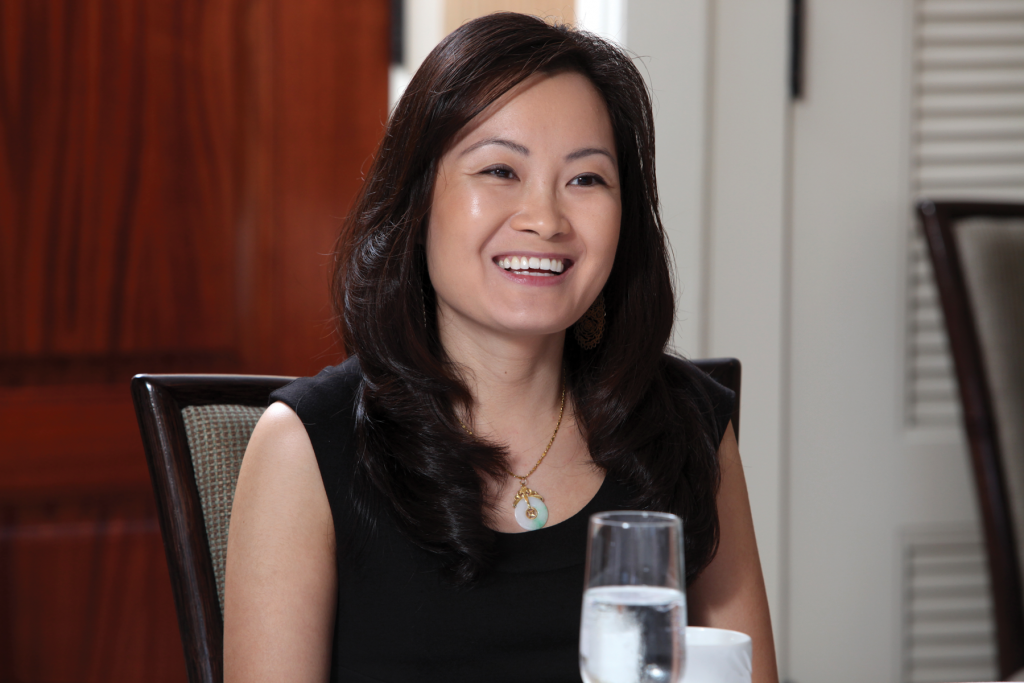 Nguyen: One of the main things I learned was to manage my time between school full time, a part-time internship and having a family with a 3-year-old. I didn’t know that I could do what I was able to do. With the help of my family, I worked hard during the week and, on the weekend, I was able to spend time with my family. No homework. That was a very rewarding experience.
Nguyen: One of the main things I learned was to manage my time between school full time, a part-time internship and having a family with a 3-year-old. I didn’t know that I could do what I was able to do. With the help of my family, I worked hard during the week and, on the weekend, I was able to spend time with my family. No homework. That was a very rewarding experience.
Chen: The most valuable thing I learned was practical experience. Our professors brought all kinds of local businesses into our classroom, made us appreciate their problems, and we helped make business plans and marketing plans for them.
Tuncbilek: My first and second years were very different for me. The first year was all about validating my work experience with the formal education, because I learned important perspectives about business. In practical work, you usually have to ignore the theory. The second year, it was more about understanding the creative part of marketing, because, throughout my life, I always worked on the analytical side of things. I have a computer-engineering education and I have a business-administration undergrad degree. Now I’m majoring in e-marketing and strategic marketing. It opened up a side of my brain that I never used before.
Petranik: All of you except for Anthia Chen worked for a few years before entering the MBA program. Was that a good move?
Nishita: It definitely was a good move. If I could maybe modify anything, I would have gotten more experience in a bigger organization. My previous work experience was in a startup, which was invaluable, because you get hands-on with everything, whether it’s operations or customers or financials. But when you’re hitting the job market after, and especially if you’re trying to get into bigger organizations, they tend to favor bigger organizational experience rather than startup experience.
Goto: When I finished my undergraduate studies, I felt like I was done with school. A large reason why I went back was because I realized the value of higher education while I was in the workforce. So, if I went straight into the MBA out of undergrad, I don’t think I would have had the motivation to keep going.
Tuncbilek: I strongly advise anybody considering an MBA to work for at least three to five years, struggle with business life, maybe get beaten up, because then you will be able to ask the correct questions and you will be able to learn. When you learn something about, let’s say, organizational behavior, you realize, “Oh, I had that problem with that employee who I used to manage. I know what he is talking about.”
Chen: I agree that it would be helpful to work a few years before getting into an MBA program. I didn’t and, in my first year, I took an organizational behavior class and that class was miserable. I had no idea what those people were talking about. But I’ve gained practical experience with local companies and I think I’m good now.
Petranik: You are from Taiwan. Is your plan to stay in Hawaii?
Chen: I plan to stay in Hawaii or go to the U.S. Mainland for one or two years to gain more experience with American companies before I go back to Taiwan to handle my father’s business, a medical-supply business. I want to take it international, starting with the Mainland Chinese market first.
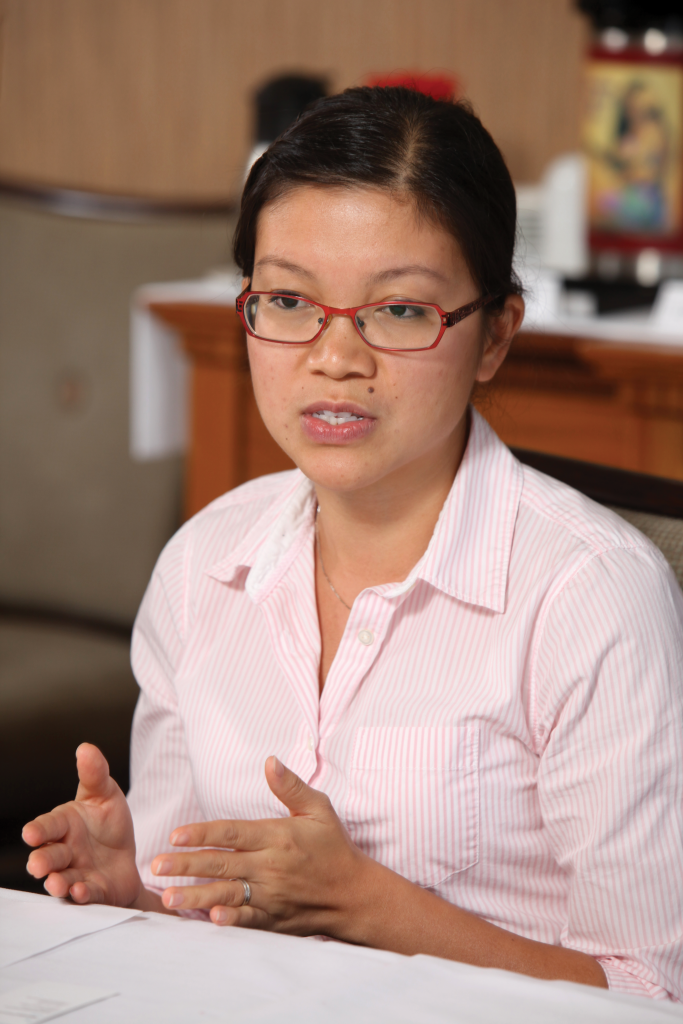 Petranik: Emre, are you staying in Hawaii?
Petranik: Emre, are you staying in Hawaii?
Tuncbilek: Yes, I am definitely staying in Hawaii. It’s a great business community here. It’s almost like a family. When I first came to Hawaii, it was August 2009, and I didn’t know anybody. I just got off the plane, went to school, started to meet people and, today, I have more than 100 business cards from people I know personally. The more you meet people, the more friends you have. I know from my personal experience that it’s not that easy in other locations to carry that aloha spirit. It creates a synergy of businesses and that’s what I really love.
Petranik: The cost of living is a huge issue in Hawaii and young people, especially, wonder: Will I ever be able to afford a home here?
Nishita: We’ve had multiple discussions with our colleagues about what it costs to live in Hawaii and it is definitely discouraging. But there are a lot of people who are trying to get Hawaii back on the map in terms of business and investments and stimulating the economy, so hopefully that will pay off.
Nguyen: To me, it’s a matter of making trade offs. If you choose to live in Hawaii, you get to live in a beautiful place with your family and kids. Maybe your job here doesn’t pay as much as elsewhere, maybe you don’t go shopping at high-end stores or don’t buy a big house, but you get to live here with your family in this beautiful place and do work that you like.
Petranik: What about support from your spouse or partner?
Goto: I’m so grateful to have a wonderful spouse and partner in my life. He has been invaluable in making the MBA process better for me. In our first year, especially, it was very stressful. There was a lot of work, I wasn’t earning any money and not making dinner anymore, and you feel like you’re not being a good spouse. He washed dishes and cooked and cleaned and he was there when I was stressed out or I questioned whether I made the right choice in leaving the work environment to go back to school.
Petranik: What do you want to be the main achievement of your business career?
Tuncbilek: I definitely want to be a venture capitalist based in Hawaii and to empower business startups.
Johns: My big, audacious goal is to have my own foundation so I can inspire positive change for other people and for Hawaii. There is so much opportunity for Hawaii to be a model for energy efficiency and for sustainability. Sustainability for me incorporates both social and environmental change.
Nishita: My wife and I were talking about what we wanted to do and our goals align around children. We love working with children and we both have experience in volunteer opportunities and coaching, but our main focus would be to improve public education on Maui because Maui holds a dear place in my heart. There is so much talent there and it needs to be fostered better in the education system.
Nguyen: My dream is to go back to Vietnam, open a university that incorporates the American higher-education system into the Vietnamese way and provide Vietnamese students with access to higher education.
Petranik: Thank you so much. Good luck in your careers.

